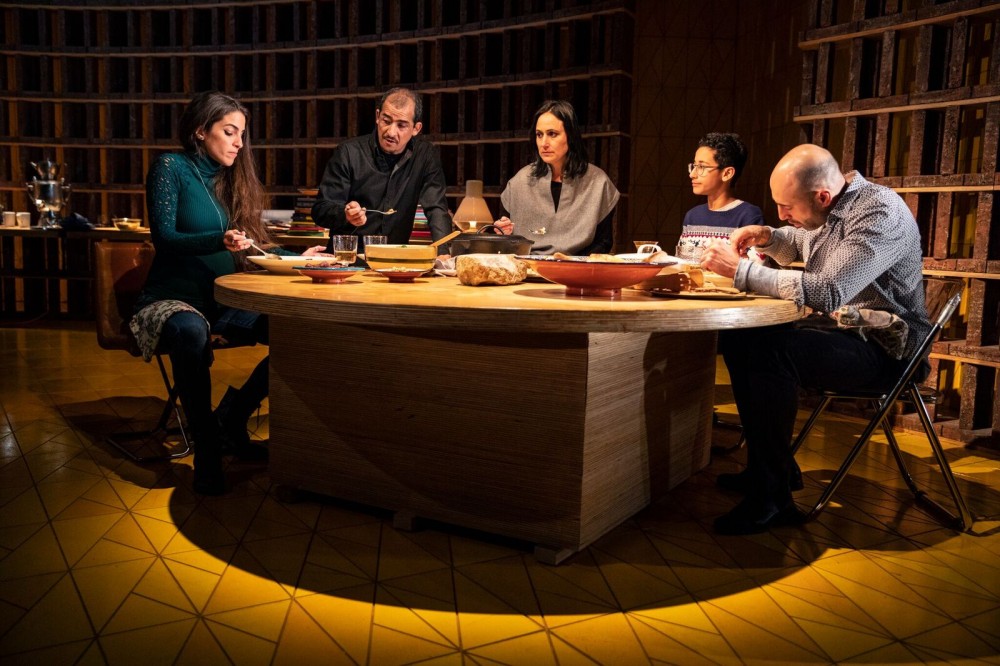One of the finest new plays of the year just past, Heather Raffo’s Noura, opened off Broadway at Playwrights Horizons a couple of days after I had to send in my Wall Street Journal best-theater-of-2018 column. Even though it has since closed, I wanted to make sure that you got to see what I said about Noura, so here’s an excerpt.
You can read the complete review here.* * *
Identity is the hottest topic in American theater these days, just as immigration is the hottest topic in American politics. But Heather Raffo’s “Noura,” a drama about a family of Iraqi Catholics who have fled to America to escape the “medieval madmen” (as one character calls them) who now rule their native land, is nothing like the issue-driven, stridently politicized plays about these subjects with which our stages are currently clogged. While “Noura” is palpably political, it preaches no sermons, nor will it send you home inspired to do anything in particular. Instead, Ms. Raffo has given us a humandrama, the searing story of five people who find themselves caught between the pulverizing grindstones of politics and religion. If it’s propaganda you seek, go elsewhere—but should you do so, you’ll miss one of the finest new plays I’ve ever reviewed in this space.

“Noura” takes place at Christmas in the New York apartment where the title character (played with attention-seizing magnetism by Ms. Raffo) lives with Tim (Nabil Elouahabi) and Alex (Liam Campora), her husband and young son. Having given up everything to free themselves from the brutal tyranny of ISIS, including their upper-middle-class careers, Noura and her family are now American citizens who are determined, in Tim’s hopeful words, to “reinvent ourselves” in “a place [where] we can forget,” so much so that Tim and Alex have changed their names from Tareq and Yazen. At home, they speak only English so that Alex “won’t grow up sounding like a foreigner,” and the Christmas tree that is the only visible touch of warmth in their austerely contemporary-looking flat (“It’s empty—I mean modern”) is also a symbol of their determination to flourish in a strange land. But Tim is kidding himself when he says that “I feel safe for the first time in my life”: Nothing can be truly safe from the effects of Western modernity, least of all a family of Iraqi émigrés, and the arrival of two visitors from home (Dahlia Azama and Matthew David) touches off a train of powder that by play’s end will blow up their seemingly settled lives….
Ms. Raffo first came to my attention in 2005 with “Nine Parts of Desire,” a one-woman play of the highest quality in which she portrayed nine refugees from Iraq whose real-life models she had interviewed and whom she brought to life with startling precision. Since then, though, I’d neither seen nor heard anything of her, and it is a joy to report that “Noura” is as fine as its predecessor….
